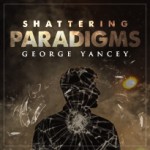This past weekend I attended the first conference of the Foundation for the Individual Rights in Education (FIRE) aimed at faculty members. FIRE’s main mission is the promotion of free speech and academic freedom on college campuses. It is a mission which deeply resonates with what I want to see happening in academia. So even though I am not a member of FIRE, I have been part of the team planning this conference. While I picked up a lot of interesting information, there are three points I want to highlight for the moment.
First, I had the pleasure of meeting Bret Weinstein. You may have heard of him. He was the professor who was harassed at Evergreen College. He made the “mistake” of opposing a request of white students and faculty to skip their classes for a day. The normal “Day of Absence” protests was for people of color to skip that day, which he did not oppose. But last year the activists wanted the white students to leave campus. He thought it unfair to expect others to participate in the protest from these activist groups. He recently settled outside of court and has left Evergreen.
He seemed like a really nice guy and a good teacher. I think I would have liked to have taken biology from him. Evergreen lost a real asset. But more than this loss, meeting him allowed me to think once again at what had occurred during the controversy at that university. The fact that the university police could not insure his protection. The fact that students raided the president’s office and attempted to restrict him from using the restroom. The fact that some of the students went around the campus with baseball bats. These facts indicate a campus no longer in control.
And that is not the way it should be. The students should not run the campus. Of course they deserve input into their own education. But they should not be in charge. And they certainly should not be threatening to other students and professors. I have blogged in the past about the weakness of some administrators and makeup of the students who disrupt the rights of others. It is not lost on me that the students who do the organizing tend to come from historically marginalized groups. Because they come from these groups, they may feel entitled to engage in actions we would normally find unacceptable. I fear many administrators do not want to interfere with these students because they feel obligated to help marginalized groups. Thus we get a perfect storm of well-intentioned academics who let student activists go too far and in truth imperil the learning environment of all students on that campus.
When I see the approaches some administrators take, I have to wonder if they have even heard of Lord of the Flies. If we allow students free rein on our campuses, they are not going to transform into fully self-actualized “woke” folks. Instead, often they will act on their worst instincts. The fact that these students may have experienced oppressive behavior in the past offers no guarantee that they will not engage in future oppressive behavior. There is an important balance to be struck. We have to go out of our way to listen to the concerns of those from marginalized groups, but we should not pretend that they are the last word.
The second point I want to make comes from what I learned during the first day of the academic freedom conference. Research from one of the presenters indicated that individuals who are insecure with their political beliefs are more likely to oppose free speech. It makes sense when you think about it. If you are not confident that you are correct, then it is natural that you want to silence others. You likely fear that you will be discovered to have been incorrect all this time.
It is also the case that when people are exposed to arguments different from their own or people who believe different ideas that they either drop their beliefs or become more confident for them. Forcing people to defend their opinions is a great way to sharpen their critical thinking skills. It may also give them enough confidence in their political beliefs that they can resist the temptation to silence others. Furthermore, it also helps them to not dehumanize individuals with different opinions which in turn increases their ability to tolerate others. So by not exposing our students to non-leftist arguments, we are helping to develop anti-free speech zealots of the future.
Indeed, this paper provided evidence that students today are less tolerant than older individuals. In the past, students have generally been more tolerant than older individuals. I think it is possible that people in general become less tolerant as they grow older and it may be that this cohort of students is especially intolerant. If that is true, then we may be raising a new set of oppressors and setting ourselves up for a hard time in the future.
Finally, I want to talk about a paper dealing with the controversy surrounding professor Olga Cox. While lecturing in class she went on a rant after the election of Trump. She went as far as to state that his election could be seen as an act of terrorism. I am certainly not a fan of Trump. I think he is the worst president we have ever had. But I do think the professor went way too far with her comments. However, academic freedom demands that she has the right to make them.
The real controversy developed because a student recorded her comments. He then sent the comments to conservative media and the story went viral. The student was suspended, but the suspension was overturned when he threatened to sue the school. The professor received many threatening messages, including death threats.
The paper brought out concerns about conservative “outrage machines” and the taping of professors as they teach. The authors pointed out that student Republican groups are now telling students to secretly record professors, and I fear that this practice will increase. I like to challenge students with different ideas, some of which will be controversial. Furthermore, we all know how words on a recording can be taken out of context to make someone look extremely ugly. Finally, my students need to have some privacy so that they can freely participate in the discussions of the class. So clearly I do not like the idea of my lectures being recorded for media consumption.
I do allow my class to be recorded for the reason of giving students another way to study the material. I do have them sign a waiver saying that the recordings will only be used for that purpose, and not get a slot on MSNBC or FOX. So I am disturbed by this new strategy by college Republicans.
Yet my disturbance is mitigated a little bit by the fact that I recognize that they do not have the same opportunities to protest bad teachers as progressive students. Ask yourself the question of when a bunch of white, heterosexual, conservative Christians stormed an administration building and made demands for their group. Go ahead and find the link; I will be back here waiting. You will not find that link because those students know that this option, as well as the option of shouting down speakers or having large, potentially violent, protests, are foreclosed to them. Those students know that any such move on their part will likely result in them being thrown out of the building and possibly out of the school.
So if they cannot do what they see progressive students are doing, these students found another way to protest. They record professors and send the recordings to some right-wing outlet. Then if the recording somehow goes viral, then the students can hope to get the same effect their peers get by de-platforming a conservative speaker.
I do not like that they are doing this. But unless we recognize that we have practically driven them to this option, then we probably are not going to stop it. We need to find productive ways for students on the left and the right to express legitimate concerns about professors even if sometimes their complaints do not have substance. And this mechanism must be available to students on the left and the right. Thus the spineless actions of some administrators to cave to progressive students has partially created the partnership of conservative college students and right-wing media.
Well those are my insights for now. It looks like FIRE will do another conference next year, and I will be part of helping to organize that one as well. Ideally this time next year I will have a new set of insights for Shattering Paradigms.












